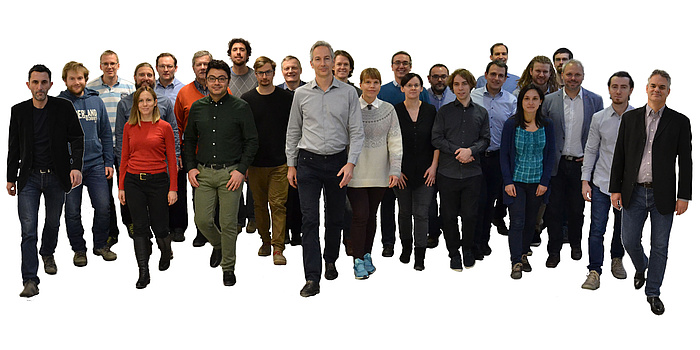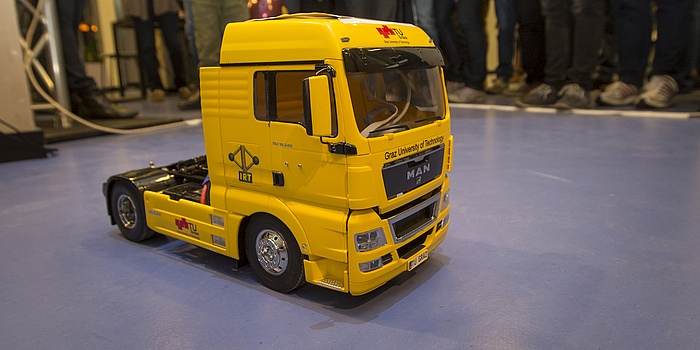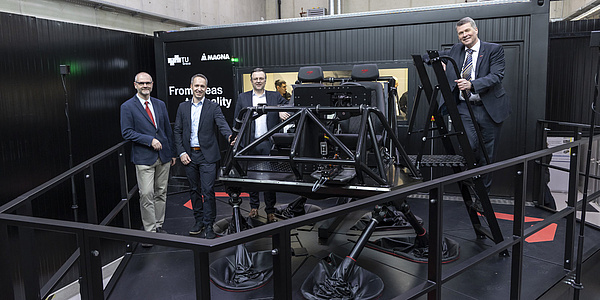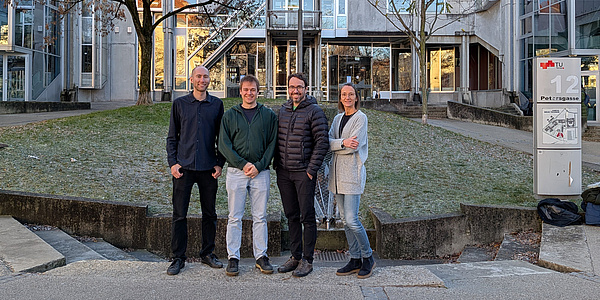Dependability in the Internet of Things

‘The Internet of Things is not a vision of the future,’ says computer scientist Kay Römer, ‘It’s been a reality for a long time.’ A look at our own bodies confirms this statement. The fitness tracker measures how long and how intensively we move every day. Our smart phone – our daily companion – doesn’t only provide us with answers to every question, but also guides us efficiently from one place to the next. And in the living room the networked thermostat makes sure we have a pleasant indoor climate. Small computers embedded in the devices make them smart and interconnected but also vulnerable to attack.
But Kay Römer isn’t really worried about the daily number of steps, the perfect ambient temperature, or the fastest way from A to B. ‘In the future smart objects will control considerably more critical processes.’ For example, chips could monitor critical health parameters, such as heart function, insulin values or blood pressure, and in an emergency call for help or administer medication. On the road, autonomous vehicles will rely on smart sensors which will provide information about their speed, position on the road, and the distance to other road users. It’s not hard to imagine how important it is that these systems work error-free and without interruption.
‘If the pedometer doesn’t work, then in the worst case it’s just annoying. But when critical processes malfunction, this can have serious consequences,’ explains Römer. ‘You can compare it to the power grid: when electricity comes out of the socket, everyone is happy. If it doesn’t, then our familiar life falls to pieces for a while.’
Ten TU Graz scientists launched the ‘Dependable Internet of Things in Adverse Environments’: Wolfgang Bösch, Stefan Mangard, Gernot Kubin, Marcel Braunach, Kay Römer, Bernhard Aichernig, Roderick Bloem, Martin Horn, Franz Pernkopf und Klaus Witrisal. Today the team has been enlarged to include more people and more specialist knowledge.
Dependability in the Internet of Things
Against this background, Kay Römer launched the ‘Dependable Internet of Things in adverse environments’ project with an interdisciplinary team of nine TU Graz scientists with the aim of boosting stability and security in the Internet of things. The project is funded by the Leadproject funding framework. In this way every two years TU Graz funds interdisciplinary and sustainable basic research for three to a maximum of six years.
The ‘Dependable Internet of Things in adverse environments’ project is the first TU Graz Leadproject to be awarded. Two further projects received special funding in 2017: Mechanics, Modeling and Simulation of Aortic Dissection und Porous Materials @ Work.
Nine PhD positions are filled in the project “Dependable Internet of Things” beginning with July 2019. Apply now!
‘Our objective is to introduce guarantees in the Internet of Things, which up to now has only been covered by liability exclusions,’ says Römer, explaining the overarching objective. This is no minor task, since the working area of smart objects is only rarely a comfortable living room. They are often exposed to harsh environmental influences. Heat, wind, rain or snow, interfering signals, hacker attacks and physical damage are just some of the factors which can affect performance. But an autonomous vehicle should be equally reliable in snowfalls and with bad visibility and be able to drive without an accident as it would under sunny and clear skies.
The first three years of the project have already shown substantial success.
Dependable Positioning
For many applications in the Internet of Things, it is necessary to get an accurate fix on the location. The usual positioning systems are less than adequate. For example, the widespread GPS requires a line-of-site connection to four positioning satellites, and can be easily confused by reflections from metal roofs and glass windows. Klaus Witrisal and his team from the Institute of Signal Processing and Speech Communication make use of exactly these two influencing factors in the subproject ‘Dependable ‘Wireless Communication and Localization’ and transform them into little helpers. The new system only needs a connection to one satellite (or a so-called anchor in the building) and it makes use of the reflected radio signals from reflecting surfaces to improve accuracy. ‘The system is not yet perfect, but we are very close to the solution,’ says Römer.
Dependable Computing
To ensure that the computers which are embedded in smart objects can compute flawlessly, they have to be protected from the influences of hackers or malware. In the subproject ‘Dependable Computing’, Marcel Baunach and his team from the Institute of Technical Informatics have developed a method of protecting trustworthy program code from untrustworthy code even in the very weak processors which are often used in the Internet of things. This means malicious software no longer has a chance of influencing trusted systems. At the same time the team examined so-called side-channel leaks. Side channels are channels which supply hackers with seemingly mundane information – for example, power consumption for a computing step, but which subsequently can facilitate an attack.
Dependable Composition
Right at the beginning of the project, Martin Horn built a test track for model trucks at the Institute of Automation and Control. Here, researchers can test and inspect their systems and theories directly on autonomously running vehicles. The main question is: how can we ensure that the vehicles drive together without accidents? Using the gathered driving pattern, Roderick Bloem from the Institute of Applied Information Processing and Communications and his team established a model to automatically teach a driving model of the trucks in the subproject ‘Dependable Composition’. They use it subsequently to train a neural network in such a way that it can predict dangerous situations and prevent them.

Researchers use model trucks like this to test their developments.
Dependable Networked Control
Control computers in autonomous vehicles rely on data which is passed on to them by sensors. Among such information is speed, gap distances and the condition of the road. To implement driving manoeuvres at the right time, the data has to be sent from the sensors to the control computer as quickly and as loss-free as possible and the control centre has to send its instructions to the actuators equally fast and loss-free. This becomes a problem when necessary information is delayed or is only partially received at the place of destination through wireless transmission in the Internet of Things. Using a combination of state-estimation and control algorithms, Martin Horn and his team were able to mitigate this problem in the subproject ‘Dependable Networked Control’.
What the Future will bring
The team has set high goals for the next three years, as Kay Römer reveals: ‘The scalability of the system in particular is an important topic because the Internet of Things is a global phenomenon with billions of devices.’ The successes of the first years of the project have resulted in new research questions. The researchers want to focus more strongly on the field of Artificial Intelligence in particular. To this end, the team has also expanded its personnel. New on board are key researcher and robotics expert Gerald Steinbauer from the Institute of Software Technology and several other young talents as associated researchers.
Parallel to the continuing basic research, the team will concentrate more on implementing the developed systems. They aim to work together with the Alp-Lab test centre for autonomous driving and the smartfactory@tugraz training factory as real test environments.
When the coming three years come to a close, the project should have developed into a sustainable research centre which will continue to deal with dependability in the Internet of Things in the future.
This research project is attributed to the Field of Expertise „Information, Communication & Computing“, one of TU Graz' five strategic areas of research.
Visit Planet research or more research related news.
Kontakt
Kay Uwe RÖMER
Univ.-Prof. Dipl.-Inform. Dr.sc.ETH
Institute of Technical Informatics
Inffeldgasse 16/I
8010 Graz
Phone: +43 316 873 6400
roemer@tugraz.at




